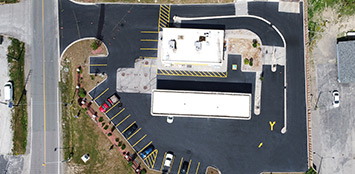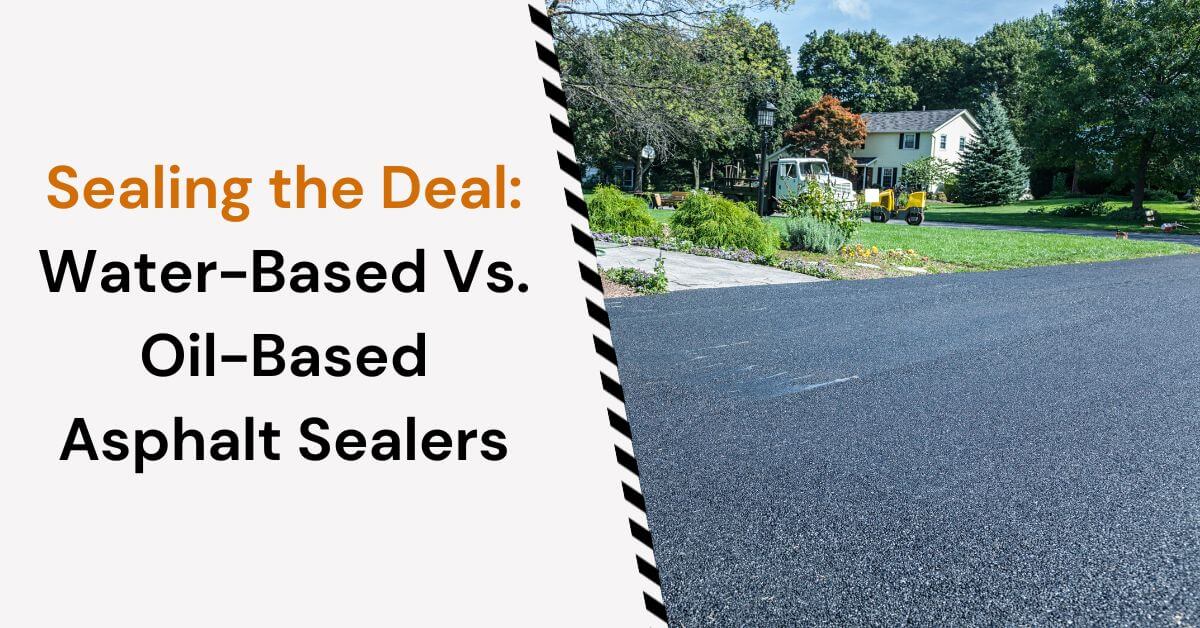Asphalt sealing is a critical step in preserving the longevity and appearance of your current or new asphalt. When it comes to choosing the right sealer, the decision often narrows down to two primary options: water-based vs oil-based asphalt sealers. Each brings its own set of characteristics and benefits to the table. In this guide, we’ll delve into a comprehensive comparison of these two popular sealers, providing you with the insights you need to make an informed choice for your asphalt surface.
Understanding Asphalt Sealers: Why Are They Important?
Asphalt sealers are protective coatings applied to asphalt surfaces, serving as a shield against the damaging effects of elements like UV rays, water, and chemicals. By filling surface imperfections and preventing moisture intrusion, sealers prolong the life of your asphalt, saving you from costly repairs and premature replacement. But which one is best for your asphalt sealing project? Water-based vs oil-based asphalt sealers, let’s dig in!
Oil-Based Sealers
When it comes to safeguarding through sealing asphalt driveways or sealcoating parking lots, oil-based sealers stand as a trusted and time-tested choice. These sealers are specially formulated with petroleum-based compounds that are blended into an oily suspension. They have a reputation for their excellent durability and capacity to build resilient, flexible bonds with the surface of the asphalt.
Oil-based sealers are made from petroleum-derived substances, enriched with asphaltic chemicals that ensure optimum performance. This unique formulation sets them apart from other sealers, making them a preferred choice for property owners seeking long-lasting and strong protection.
Benefits Of Oil-Based Sealers
Superior Protection
Oil-based sealers create a strong, flexible barrier that can withstand the constant contraction and expansion of the asphalt, especially in regions prone to colder climates – like Canada! This enhanced resilience makes them an ideal choice for areas subject to extreme weather conditions.
Longevity
One of the main features of oil-based sealers is their excellent lifespan. They typically provide reliable protection for 4-6 years. This extended longevity surpasses that of their water-based counterparts, making them a cost-effective investment in the long run.
Deep Penetration
Oil-based sealers excel in their ability to deeply penetrate the asphalt surface. This profound connection strengthens the bond between the sealer and the underlying asphalt, resulting in enhanced durability. This deep-seated protection serves as a shield against the elements, ensuring your driveway remains brand new for years to come.
Limitations Of Oil-Based Sealers
VOC Content
It’s worth noting that oil-based sealers may have a higher Volatile Organic Compound (VOC) content compared to their water-based counterparts. While this aspect may be a concern for environmentally conscious individuals, it’s essential to weigh the benefits of superior protection against potential environmental impact.
Application Odour
During the application process, oil-based sealers emit a distinctive odour. While this may be a temporary inconvenience, it’s a small trade-off for the substantial benefits they offer in terms of protection and longevity.
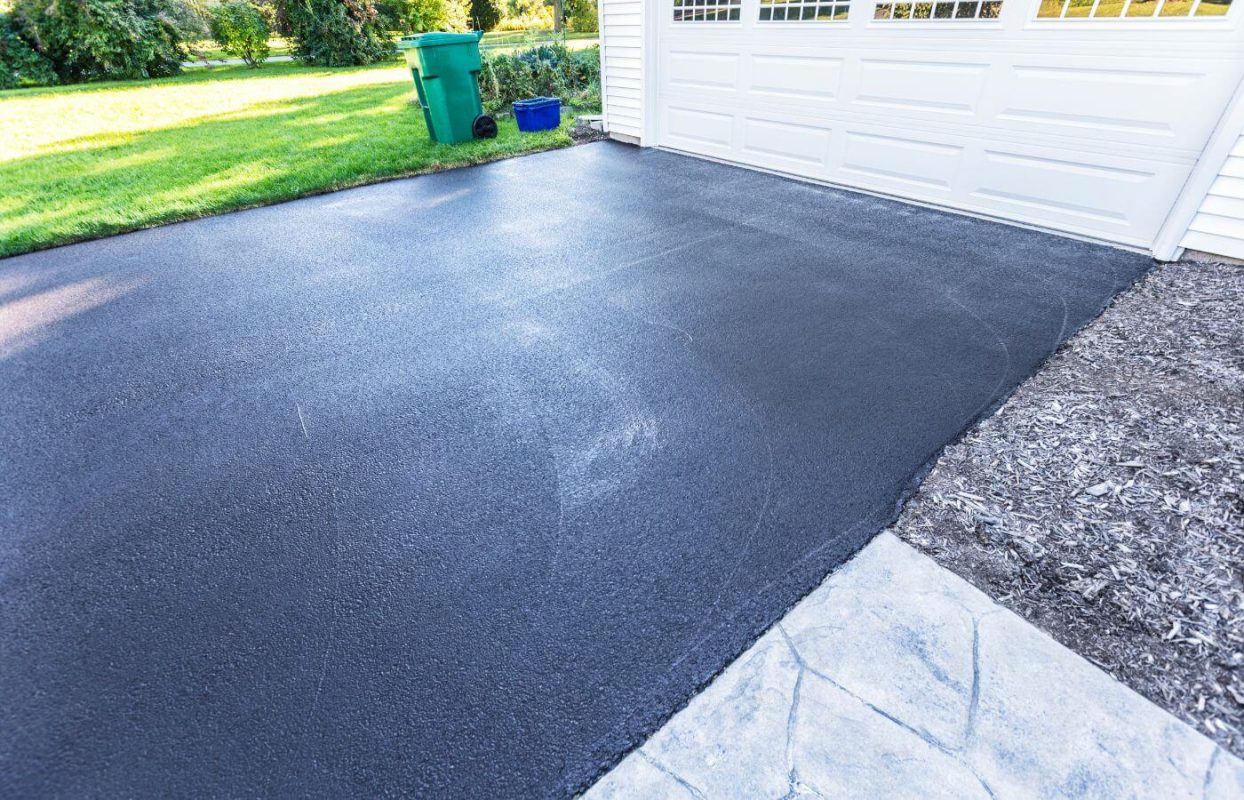
Water-Based Sealers
Water-based sealers represent a more eco-conscious approach to asphalt protection. They consist of emulsions containing coal and tar or asphalt, all suspended within a water-based solution. This composition not only gives them an eco-friendly profile but also makes them notably user-friendly.
Benefits Of Water-Based Sealers
Environmental Friendliness
Water-based sealers boast a low Volatile Organic Compound (VOC) content, aligning them with environmentally conscious practices. This eco-friendly feature ensures minimal impact on the environment during and after application.
Swift Curing Process
Water-based sealers set themselves apart with their accelerated drying period. Compared to their oil-based counterparts, they exhibit a notably quicker curing process. This swifter turnaround time translates to less inconvenience and a shorter waiting period before enjoying your newly sealed asphalt.
Effortless Cleanup
The application of water-based sealers is a rather easy endeavour. Unlike oil-based sealers, which can involve more intricate cleanup processes, water-based alternatives can be easily tidied up with water alone. This streamlined cleanup procedure adds a layer of convenience to the application process.
Limitations Of Water-Based Sealers
Durability
Despite their eco-friendliness and user-friendly application, water-based sealers don’t last as long as their oil-based counterparts. The general lifespan of water-based sealers is 2-3 years, compared to oil-based sealers which last for 4-6 years.
Penetration Depth
Another aspect to consider is their penetration depth into the asphalt surface. Water-based sealers may not infiltrate the asphalt to the same extent as their fellow oil-based sealer. This reduced penetration potential can impact the sealer’s overall effectiveness and longevity.
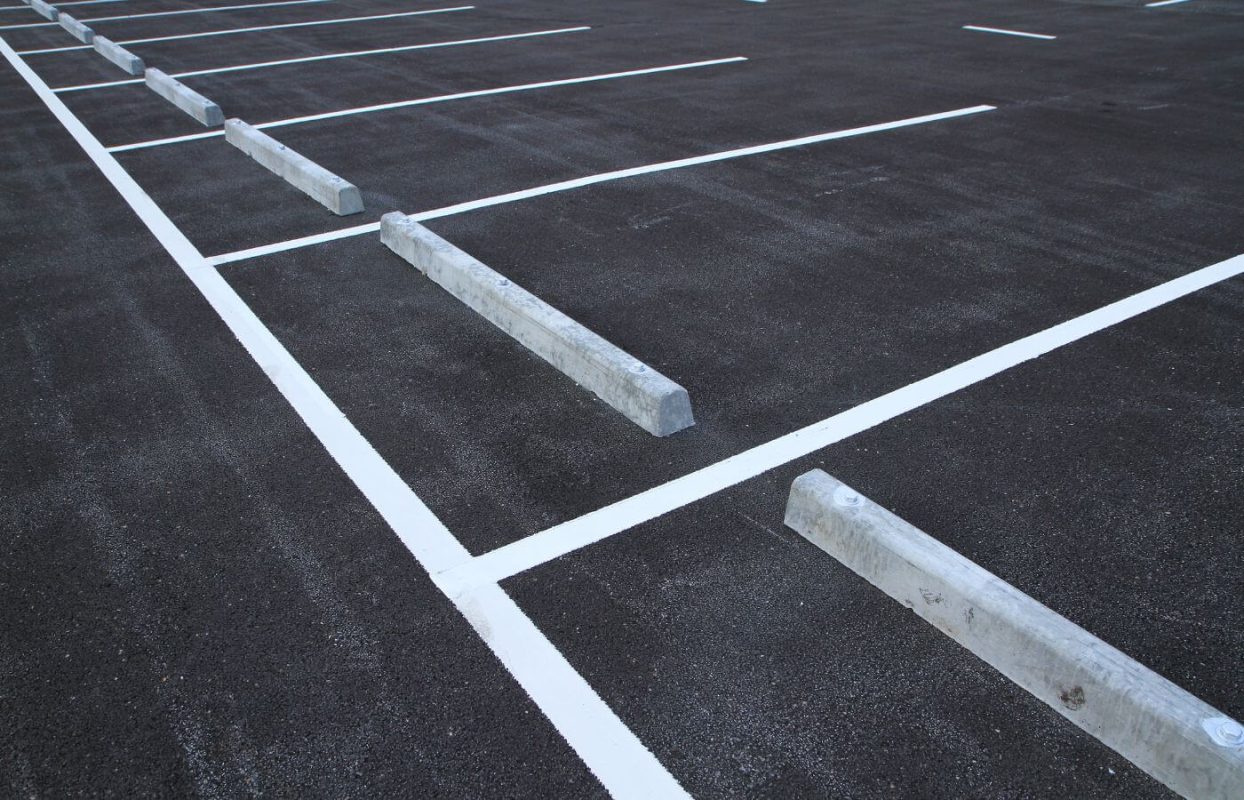
Comparing Water-Based and Oil-Based Sealers
Durability
Oil-Based Sealers: The Epitome of Longevity
Oil-based sealers are renowned for their exceptional durability. With a lifespan of four to six years, they outlast their water-based counterparts. The unique composition of oil-based sealers creates a robust, flexible barrier that effectively withstands contraction and expansion, particularly in regions prone to colder climates. This means fewer reapplications, saving you time and effort in the long run.
Water-Based Sealers: Struggling to Keep Pace
While water-based sealers offer environmental benefits and a quick curing time, their durability falls short in comparison to oil-based sealers. The surface protection they provide may not stand the test of time, necessitating more frequent reapplications. This can be a significant factor to consider, especially for property owners seeking a long-lasting solution for their asphalt.
Ease of Application
Oil-Based Sealers: Applying with Ease
When it comes to application, oil-based sealers hold an advantage. Their smooth, oily consistency allows for easy spreading, ensuring comprehensive coverage over the entire surface. This ease of application simplifies the sealing process, making it a more straightforward task for property owners and contractors alike.
Water-Based Sealers: Quick but Not Always Easy
Water-based sealers are known for their fast drying time, which can be a convenience during application. However, their consistency may be thicker, potentially requiring more effort to achieve uniform coverage. Additionally, the quick drying time may necessitate a faster application pace, leaving less room for adjustments.

Aesthetics
Oil-Based Sealers: A Glossy, Timeless Finish
One of the standout features of oil-based sealers is the rich, glossy black finish they impart to the asphalt surface. This aesthetic enhancement not only adds to the visual appeal of your asphalt but also helps maintain its fresh, new look for an extended period. The deep, dark finish provided by oil-based sealers can enhance the overall curb appeal of your property.
Water-Based Sealers: Functional but Less Aesthetic Appeal
While water-based sealers are effective in their protective function, they may not offer the same level of aesthetic enhancement as oil-based sealers. The finish may be more functional than visually striking, potentially lacking the timeless appeal that comes with the glossy finish of an oil-based sealer.
Environmental Considerations
Oil-Based Sealers: Balancing Performance and Environmental Impact
It’s important to note that oil-based sealers may have a higher VOC content compared to water-based sealers. This can be a consideration for environmentally conscious users. However, advancements in formulation have led to low-VOC options that strike a balance between performance and environmental impact.
Water-Based Sealers: The Eco-Friendly Choice
Water-based sealers have earned their reputation as an eco-friendly option due to their low VOC content. This makes them a preferred choice for those prioritizing environmental considerations. The reduced impact on air quality during application can be significant for property owners aiming to minimize their ecological footprint.
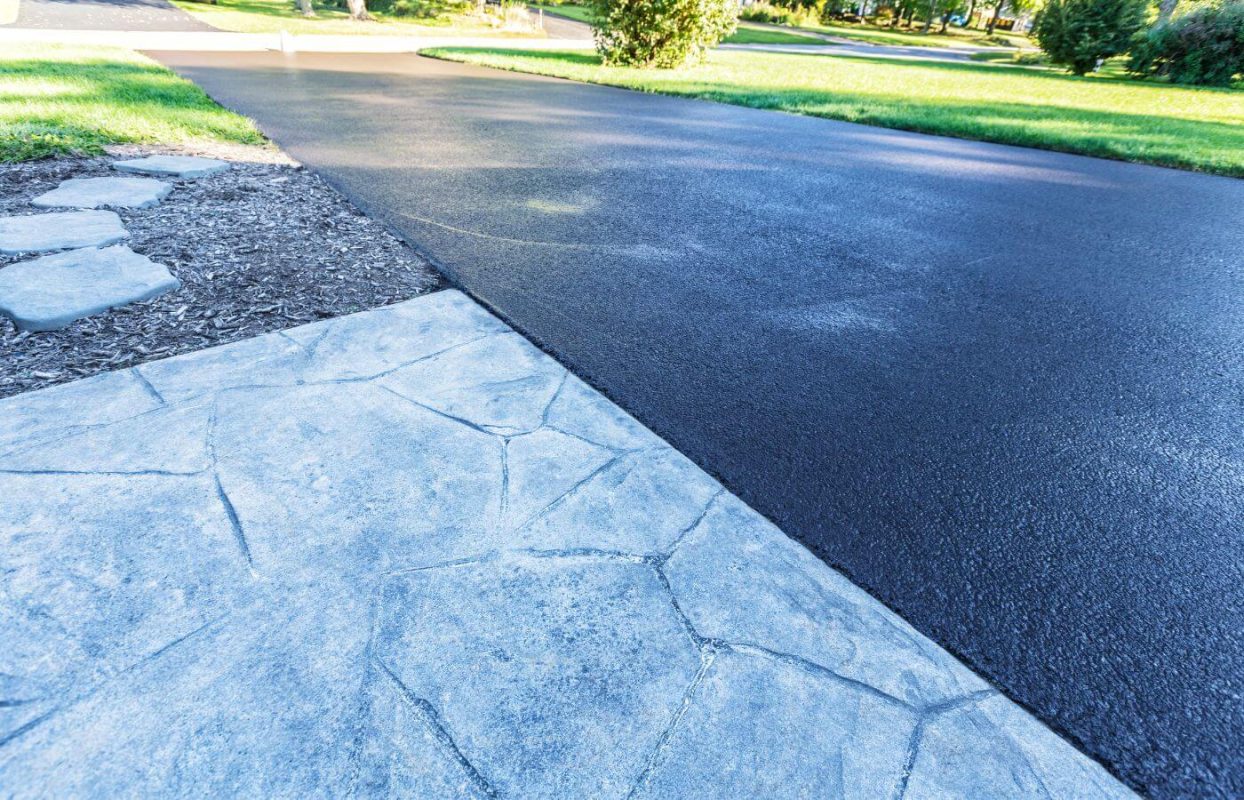
Making the Right Choice
The choice between water-based vs oil-based asphalt sealers ultimately boils down to a question of longevity and robust protection. While water-based sealers offer certain advantages, including environmental considerations and quick curing, they simply cannot match the enduring strength and aesthetic appeal of their oil-based counterparts. Oil-based sealers provide a rich, glossy finish, exceptional durability, and ease of application, making them the superior choice for property owners looking for a long-lasting solution. By opting for an oil-based sealer, you’re not just sealing your asphalt, you’re sealing the deal on a durable and attractive investment that will stand the test of time. Your asphalt will thank you with years of reliable service and a polished appearance.
Click here for your free quote in minutes!


